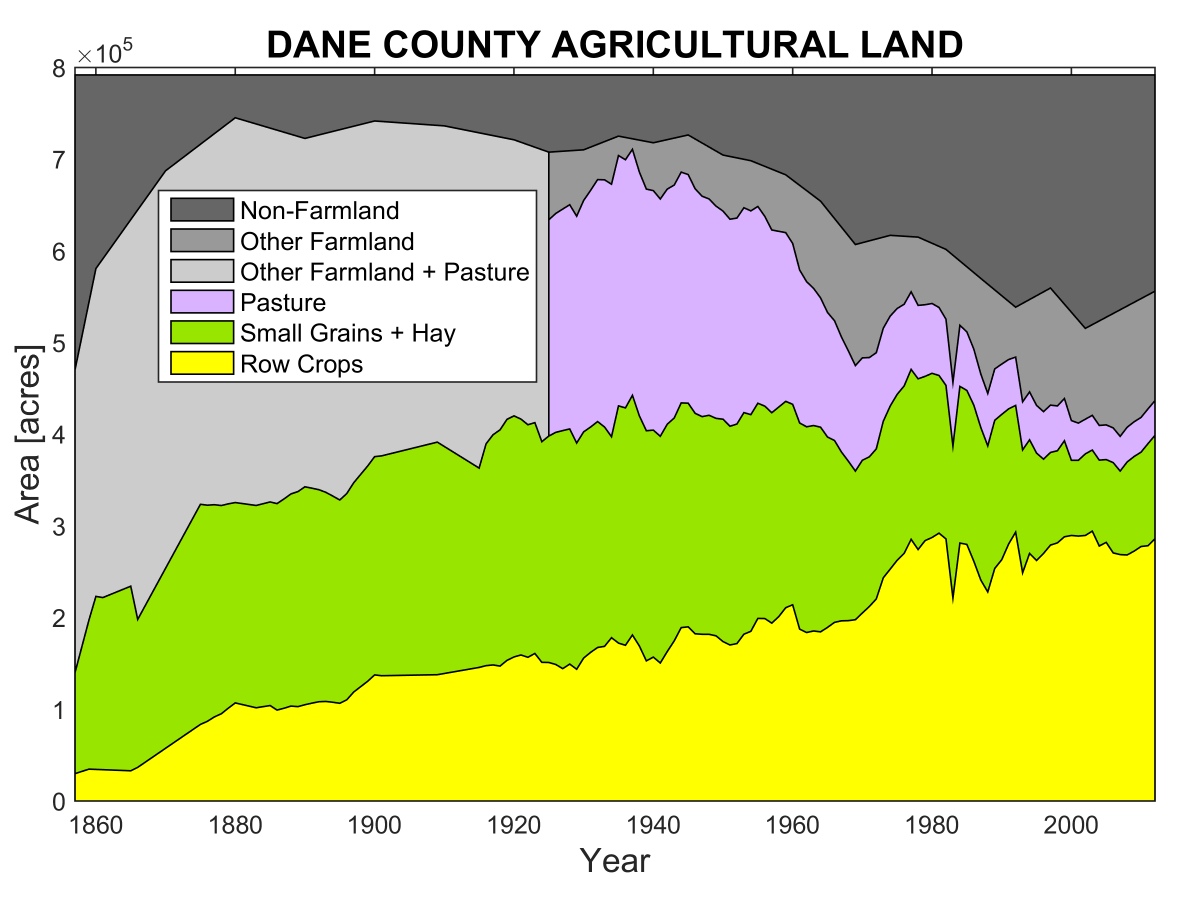public resources
What's hindering progress
More row crops

As crop demands have changed, so has Dane County’s agricultural land. Row crops (corn and soy), which tend to cause more erosion, have increased while small grains, hay, and pasture* have decreased.
In this figure, farmland includes cropland, on-farm woodland, and acreage dedicated to farm buildings. The majority of non-farmland acreage is urban, and the remainder includes woodlands, parks, and water bodies.
*The USDA Agricultural Census began to account for pasture separately in 1925.
Data source: USDA Historical Agricultural Census, Gillon et al. 2015


